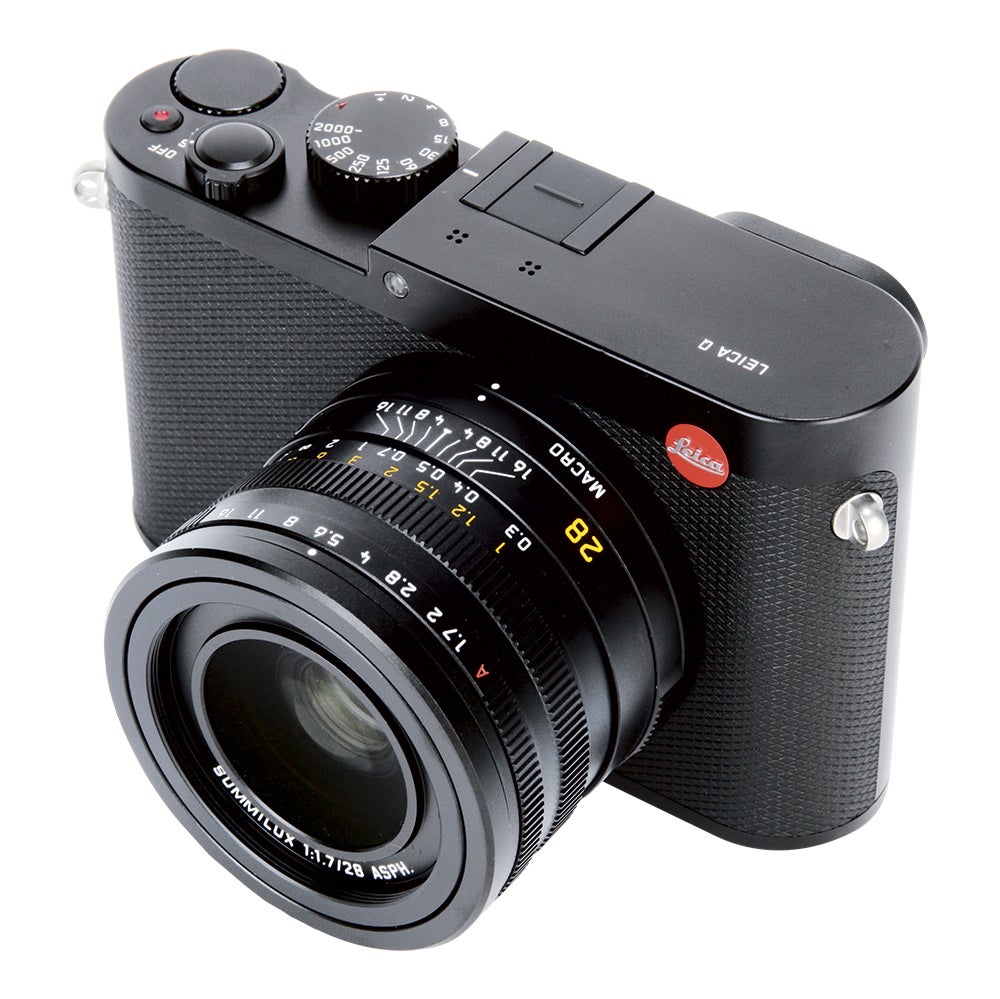The delight factor may be an emotional response to a camera, but it’s as important as any physical feature. Professor Newman discusses this factor...
A friend recently told me that he’s thinking of buying a Leica Q as a birthday present to himself. ‘Of course’, he said, ‘it’s a ridiculous camera, but I just want one’.
The Leica Q is a 35mm, fixed-lens, full-frame compact. In most ways one can think of, it isn’t a ridiculous camera at all. Its fixed 28mm f/1.7 lens can be relied upon to be very good indeed, and it uses a 24-million-pixel, full-frame sensor that should provide very good image quality – although this is not the same sensor as that used in the Leica M. With 10 frames per second capability and all the expected up-to-date features, such as high-definition video, autofocus and a built-in eye-level electronic viewfinder, the Q is a very capable camera.
I suspect that the reason my friend thinks it is ‘ridiculous’ is the price: the Q costs £2,900
in the UK (although it is a relative bargain here, as unlike almost every other manufacturer
Leica seems to have set its prices nearly according to exchange rates, rather than a sterling-to-dollar parity).
While that seems a lot, it is a capable camera and most other full-frame cameras with lens would cost a comparable amount, although a fixed as opposed to interchangeable lens is possibly a limitation.
However, for my friend, the Q has a feature that none of the others has, which I would call the ‘delight factor’. This is a camera that he covets. The reasons may be irrational – emotional reactions often are – but I would argue that using a camera with the delight factor is at least as important in helping to produce wonderful images as any other feature in the specification list.
Some time ago, I led a research project on the use of computerised design methods by people who style cars. The car companies had introduced computer tools, but the car designers either wouldn’t use them or, when they were used, they did not produce good results. It turned out that although, according to their specification, the computerised tools did everything the designers needed, they just weren’t a good fit with the process by which they expressed their creativity, and that was a highly individual thing.
I think that a camera is much the same. However good its specification may be, if the camera doesn’t fit with the way you develop and realise photographic ideas, it’s not for you. Having delight in a camera is at least as important for the individual photographer as any other feature. It’s unlikely that the creative juices will flow if you don’t get on with your equipment. So, my advice to my friend was, however ‘ridiculous’ a camera you might think it to be, if it delights you, get it.





